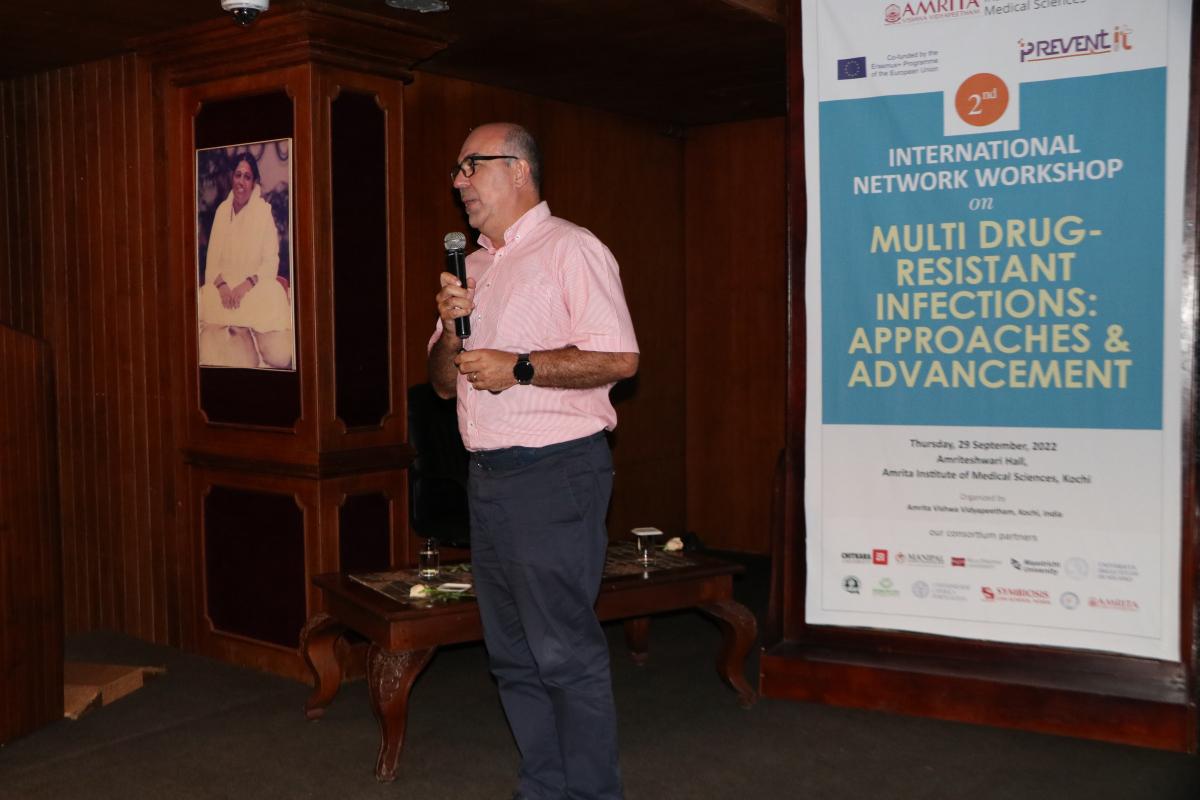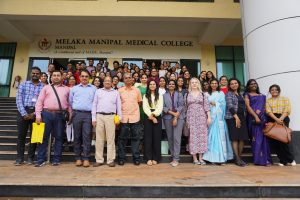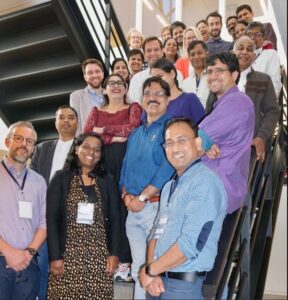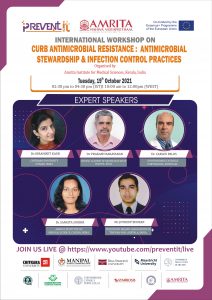PreventIt project- Risk management and prevention of antibiotics resistance is a four year long project co-funded by the Erasmus+ program of the European Union. The project comprises 5 Indian universities, 4 European universities as well as 2 Non-Governmental Organizations from India. Teaching Mobility is a major component of the project that connects students of Indian universities with experts from European Universities by conducting short teaching sessions and lectures on antibiotic resistance at the Indian Universities. As a part of this, a two-day teaching module by Dr. Caros Palos, Professor, Portuguese Catholic University, Lisbon, Portugal, was organized by the Amrita Viswa Vidapeetham at Amrita Institute of Medical Sciences, Kochi, Kerala from 26th September to 28th September. The target audience included students of medicine, resident doctors, undergraduate and postgraduate students of dentistry, students of community medicine, and research scholars in public health.
The initial session was Dr. Palos’s lecture on antibiotic stewardship program for medical students. Most of the students were in their second year of medical education, starting to learn microbiology, and Dr Palos’ talk gave insights to them regarding the impact of antimicrobial resistance and its control. In the next session, Dr. Palos interacted with the post graduate medical students, research scholars and residents etc. particularly from the Department of Community Medicine, Public Health and Microbiology. The session was on ‘Portuguese experience of Monkey Pox outbreak’ in which various epidemiological and behavioral aspects of monkey pox were discussed. Dr. Carlos Palos delivered couple of another insightful lectures at the college of dentistry for undergraduates and postgraduate students regarding the ‘Infectious occupational hazards and infection control in dentistry’ and impact of AMR in dental practice. These were eye-opening sessions related to dental practice and the students gained practical knowledge on AMR in the context of dentistry practice.
The teaching mobility was a valuable opportunity for the students to gain knowledge regarding the importance of AMR with a special emphasis on infection control practices. It also helped the faculty and research staff of the schools of medicine and dentistry to start exploring research possibilities related to antibiotic resistance in their field of practice.







